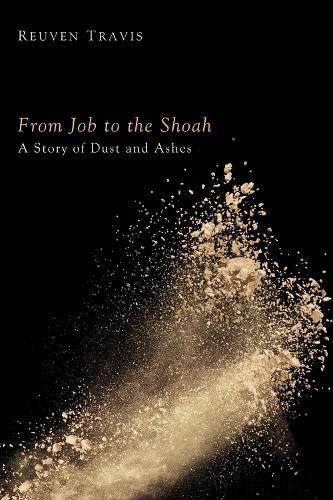Readings Newsletter
Become a Readings Member to make your shopping experience even easier.
Sign in or sign up for free!
You’re not far away from qualifying for FREE standard shipping within Australia
You’ve qualified for FREE standard shipping within Australia
The cart is loading…






This title is printed to order. This book may have been self-published. If so, we cannot guarantee the quality of the content. In the main most books will have gone through the editing process however some may not. We therefore suggest that you be aware of this before ordering this book. If in doubt check either the author or publisher’s details as we are unable to accept any returns unless they are faulty. Please contact us if you have any questions.
In Job’s final concession to God, he uses a phrase generally translated from the Hebrew as, Wherefore I abhor myself, and repent in dust and ashes (afar va-eifer). A very small number of scholars see this translation as forced. While most translations have Job referring to himself with the words afar va-eifer, this small group of scholars does not believe the Hebrew to be so clear. They maintain that the phrase afar va-eifer could just as easily be translated as referring to God. In this translation of the text, Job is calling God dust and ashes. Can Job truly be referring to God, not himself, as dust and ashes? How dare he? And if he did, what did this mean theologically? If this linguistic analysis is correct, how are we to understand not only the ending of the book, but also the entire story of Job? These are the questions From Job to the Shoah strives to answer. The conclusions it reaches have profound theological implications, especially in our modern era when the dust and ashes of the six million Jews murdered in the Holocaust still hang heavily above us.
$9.00 standard shipping within Australia
FREE standard shipping within Australia for orders over $100.00
Express & International shipping calculated at checkout
This title is printed to order. This book may have been self-published. If so, we cannot guarantee the quality of the content. In the main most books will have gone through the editing process however some may not. We therefore suggest that you be aware of this before ordering this book. If in doubt check either the author or publisher’s details as we are unable to accept any returns unless they are faulty. Please contact us if you have any questions.
In Job’s final concession to God, he uses a phrase generally translated from the Hebrew as, Wherefore I abhor myself, and repent in dust and ashes (afar va-eifer). A very small number of scholars see this translation as forced. While most translations have Job referring to himself with the words afar va-eifer, this small group of scholars does not believe the Hebrew to be so clear. They maintain that the phrase afar va-eifer could just as easily be translated as referring to God. In this translation of the text, Job is calling God dust and ashes. Can Job truly be referring to God, not himself, as dust and ashes? How dare he? And if he did, what did this mean theologically? If this linguistic analysis is correct, how are we to understand not only the ending of the book, but also the entire story of Job? These are the questions From Job to the Shoah strives to answer. The conclusions it reaches have profound theological implications, especially in our modern era when the dust and ashes of the six million Jews murdered in the Holocaust still hang heavily above us.